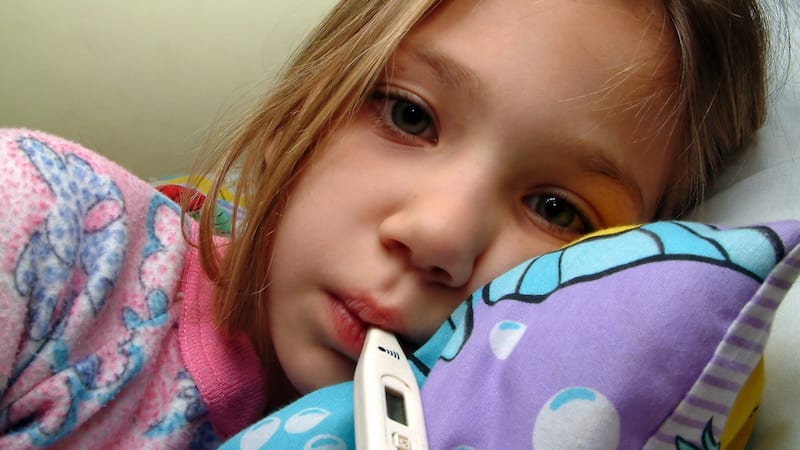Flu season is scary this year. The conversation about when students—and teachers—should stay home sick from school has never felt timelier. However, for those of us who also have school-age children, teaching during flu season often turns more personal … and more difficult.
Me, as a teacher: Parents who don’t keep their kids home when they are obviously sick are frustrating. Don’t infect others!
Also me, but as a parent: Okay, so I know my son threw up last night at 8 p.m., but it’s now 7 a.m. He seems fine, and I really, really can’t be out today. … So I’m sending him to school. They can call me if he doesn’t make it through the day.
What happens when our students get sick?

As a teacher, I often look around my classroom and feel like it looks and sounds more like a doctor’s office waiting room than a high school classroom. Students are sneezing, hacking, and asking to go to the nurse. They come in with fevers. Sometimes they’ve vomiting. They’ll even come in the day after they were sent home sick, not looking much better.
It’s frustrating to see absences pile up, especially when you know some of the sick students walking the halls are probably contagious and infecting even more students. We also live in fear, knowing that it’s just a matter of time before we catch whatever is floating around school. There’s such a fine line between when a student should or shouldn’t go to school. And at the end of the day, it’s mostly up to them and their parents to decide. So keep the hand sanitizer filled and the disinfectant nearby. They might be two of your best options for staying healthy. You might also try these immune-system-boosting tips.
What happens when we get sick?

It’s a universal truth that teaching is one of the few professions where it really is more trouble to stay home sick than it is to go to work feeling crummy. Substitute lesson plans have always been a pain. But with more and more districts requiring teachers to provide lessons that are curriculum- and standards-based, even if a teacher has become sick unexpectedly, taking a sick day has truly become a nightmare.
This means that teachers often are faced with the somewhat hypocritical position of being angry at parents who send their children in sick while teaching on days when they really should be home in bed. We’ve all gone to school when it would have been better to stay home because we were physically ill or needed a mental health day.
What happens when our own kids get sick?

This flu season has been brutal in my house. The season isn’t over, and my children’s combined sick days number more than 14. These are the days where my husband and I have had to discuss, argue, beg, bribe, and negotiate with each other over whose job is less important on any particular day. It’s a difficult process.
Who could more easily stay home? Whose boss would be less annoyed? Whose working life would be less disrupted by not going in that day? It’s awful. And yes, it has led to days when I’ve given one of my children a dose of Tylenol and sent them to school, praying that they weren’t too sick to make it through the day. And yes, I feel guilty and conflicted and terrible about it.
What can be done to help?

Although the issue isn’t a new one, with the severity of this flu season reaching life-threatening levels, it does seem like it might be time to come up with new solutions. Maybe school districts need to be a bit more reasonable about emergency sub plans. Perhaps employers need to be more lenient when it comes to work missed due to family illness during flu season. Should schools work toward providing free flu vaccines to students and their families? Whatever the possible solutions, one thing seems clear: When teachers and students come to school with contagious illnesses, everyone suffers.
How do you balance parenting and teaching during cold and flu season? We’re talking about these issues and more in our WeAreTeachers Chat group on Facebook.

